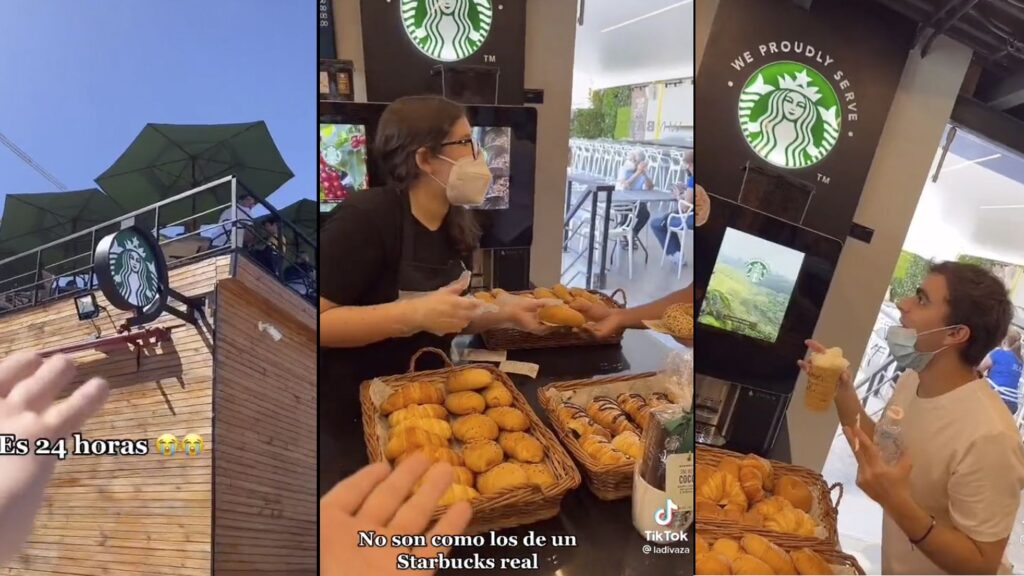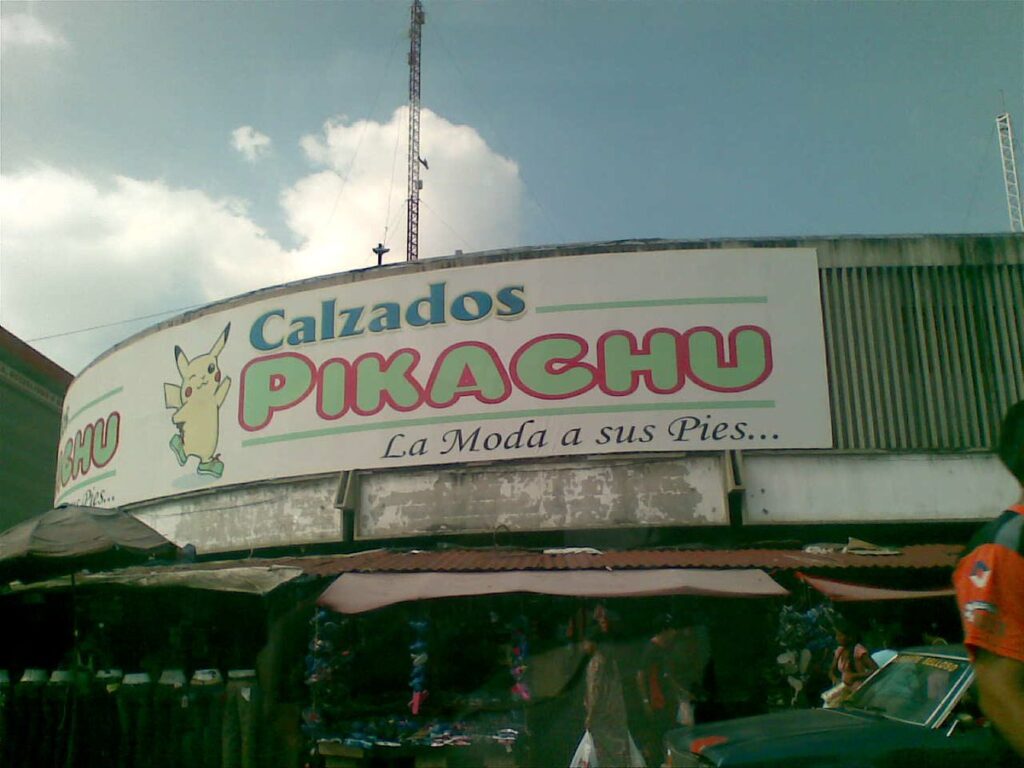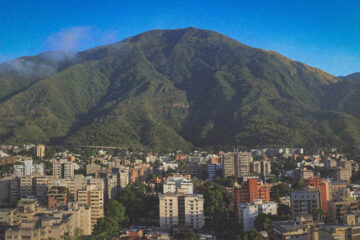Who hasn’t had a little bootleg here and there in their lives? I sure have, and I have no qualms in admitting it.
A few months ago I touched upon the subject of piracy in Venezuela from a devil’s advocate point. This time around, I’d like to talk a little about another related facet: bootleg products and, I suppose you could say, the lack of respect for intellectual property, a situation that isn’t inherently isolated to Venezuela.
As with the above-referenced post, I’d like to preface this by stating that I am in no way advocating for any of it — let’s be real, though. In these lands (and by extension, Latinamerica as a whole) where life can often be difficult and uphill no one’s going to shed a tear about the hurt feelings of large corporations, especially less when it involves copyright infringements.
Personally, I don’t like how brands do have the power to convey a sense of status upon consumers, and my country, even after everything that’s happened, is no exception.
A sizable portion of Venezuelans exemplify this; they have this bad trait of wanting to have the latest in consumer products and ‘status’ phones — to live the ‘experience’ of owning these premium things and partaking in the consumption of renowned franchises no matter the cost, to get excited when something has the ‘imported’ adjective slapped onto it and all that.
I’m not going to belittle them, and I’m not going to pretend that it is an isolated thing in this country, because it’s not. Now, these urges clash against the economic reality of a country such as this, where about 20% of the people have already fled and more than 90% of the remaining populace live in poverty. When it comes to brands and ‘original’ products one thing is true, not everyone gets to afford original things down here.
Not only has Venezuela’s economic situation always been a troublesome matter that just got insurmountably worse in the past decade, there’s also this hard solid fact that’s seemingly ingrained in our culture: Why would you spend so much on an original pair of brand jeans when you can find a near perfect replica for far less if you just put the effort to walk around the popular marketplaces? Why spend so much on a cologne when you can get something that smells pretty much the same for far less?
That is one of the many lessons imparted upon me by my grandmother and aunt during my youth.
I certainly can’t afford the luxury of brand clothing, and I don’t need it anyways, as I’ve never been one to indulge in purchasing expensive clothing nor luxuries, I only get what I need and that’s it — that’s why I’m still rocking 10+ year old hardware.
I’m not going to try and pass as an ascetic person but come to think of it, in terms of consumerism, I do live a simple life that’s close to what those with different ideologies than mine profess (but don’t practice). As a matter of fact, I am writing these lines wearing one of my bootleg Adidas shorts.
You’d never tell the difference between these shorts and an original one unless perhaps you touch them and notice the difference in material quality. The last time I bought shirts for myself was back in 2015. These totally original “Lacoste” shirts were not bought at a fancy store — no, no, I got them at an alley store in El Cementerio. The same goes for shoes, the last time I bought a pair was back in 2014.
I owe countless hours of my youth’s imagination to the bootleg toys my mom and grandmother used to get for me whenever she could afford them. From the imitation Saint Seiya toys to the absurdly rigid Dragon Ball Chinese knockoff setpieces. The fact that I grew among so many bootleg toys is perhaps why I find them rather fascinating and funny even after all this time.
Be that as it may, not everyone thinks like me, and I’ve known my fair share of people that would rather die than see their ‘status’ diminished by not wearing original clothes or not indulging in the latest trends — to each their own, I live and let die.
Fake brands and the pursuit of experiences
What really prompted me to make a post of this nature was the sudden and short lived arrival of a “Starbucks” in one of Caracas’ most renowned commercial districts. Long story short: A store in Venezuela obtained a license to operate a “We Proudly Serve” Starbucks — the license, though, was never meant to be for a store in Venezuela, but rather, for a hypothetical locale in Florida.
Flocks of Venezuelans, including a series of influencers that now dedicate themselves to portray and wash up the image of a “Fixed” Venezuela went and waited in line to partake in the experience of tasting the oh-so famous sugary drinks.
Videos of what I can describe as snobby zoomers slurping literal sugar reminded me that some people here do have a different perception of priorities than mine — maybe I’m just getting old and worn, I don’t know. At the end of the day, if I want coffee I just stick to my old and trusty coffee machine that I got back in my college days.
Once the jig was up with this ‘franchise’ things reached up to their ultimate conclusion: the store withdrew all the branding and removed the pseudo-Starbucks from their premises.
Although this was technically a legitimate franchise (until Starbucks found out what was going on) there have been plenty of cases of actual bootleg iterations of internationally known franchises that have no intentions of doing business in Venezuela. Anyone who has spent time on the internet has seen many of these copycat places sprout up in many corners of the world, it’s not a new thing, if I can reiterate that point.
The recent easing of the draconian regulations that destroyed the country has given forth to a new wave of bootleg franchises that have filled some holes left by franchises and stores that either left the country or did not survive the economic collapse. Some recent examples include a restaurant that takes upon the likeness of America’s Five Guys Burgers.
From fake Walgreens, Apple stores, to even pseudo Walmarts, you find plenty of these stuff around, more so than before, but not in such high magnitudes.
It’s simple really, what are the original holders of these IPs gonna do about it, complain to the government of Venezuela? If this regime cares little about human rights, what makes you think they will uphold the intellectual property rights of a foreign company, especially those that represent that which they ideologically oppose? Lmao.
Besides, there’s no way for these companies to enforce their intellectual properties in this country, they literally have no power here. At the same time, it’s hard for a citizen to uphold and defend any intellectual property rights they may have, especially when our laws about it are so obsolete, so it goes both ways.
The Venezuelan regime does partake in a little copyright infringement, as a treat. Case in point, the Kellogg’s brand. This American company bailed out of the country in 2018 and the regime seized all assets, eventually resuming operations and selling the products as if nothing had happened.
I do have a question, though. If the real Toucan Sam wore a mask, would he wear it like this?
Playful bootlegs
Not all bootleg and copies of brands are done with malicious intent, as I’m pretty sure everyone has seen pictures of Taqueria Goku. It’s funny, its hilarious, and Mr. John Toei in Japan isn’t going to cause a ruckus about it.
I come from a place that indulges in similar practices. Recently, I found out a cousin works at a food place that sells “Whoppers” that have nothing in common with the Burger King product but are vastly cheaper than what a real Whopper costs these days. Some blatant copyright infringements are even playful and very much an ingrained part of their respective cities’ history.
A famous shoe store from my birthplace city of Maracaibo is called “Calzados Pikachu.” I guess the famous Pokémon finally wised up and invested into a business venture of its own.
I was told by someone that the Pikachu in the name is not actually referencing the Pokémon, but rather, it’s a pun on “Pick-a-shoe,” get it? They sell shoes, so when you walk to the store you have to pick a shoe (pikachu).
What’s the Pokémon Company and Nintendo gonna do about it? Nothing, there is nothing they can do about it, and anyone that has spent some time with videogames knows how trigger happy and protective Nintendo is with regards to their IP.
Another famous store from my youth, one that used to have a store very close to my grandmother’s place, took upon the likeness of the Flintstones. It’s pretty wild that it still exists today.
There are plenty more examples, regardless, we’re still far from matching the power level of bootlegging that some other countries wield. I know the country has had some rough years, and the last thing in everyone’s minds right now is to worry about these sorts of things, even during the weird but stagnant calm we’re now living in.
Perhaps some more brands will decide to invest in the country, authoritarian regime notwithstanding, it’s ultimately their call (and money). There are some other brands that have left the country, such as Wendy’s, and others, such as McDonald’s, are still afloat albeit at a drastically diminished and reduced quality and offerings.
We’ll see. No matter what happens, bootlegs will always be a thing around here.
-Kal










